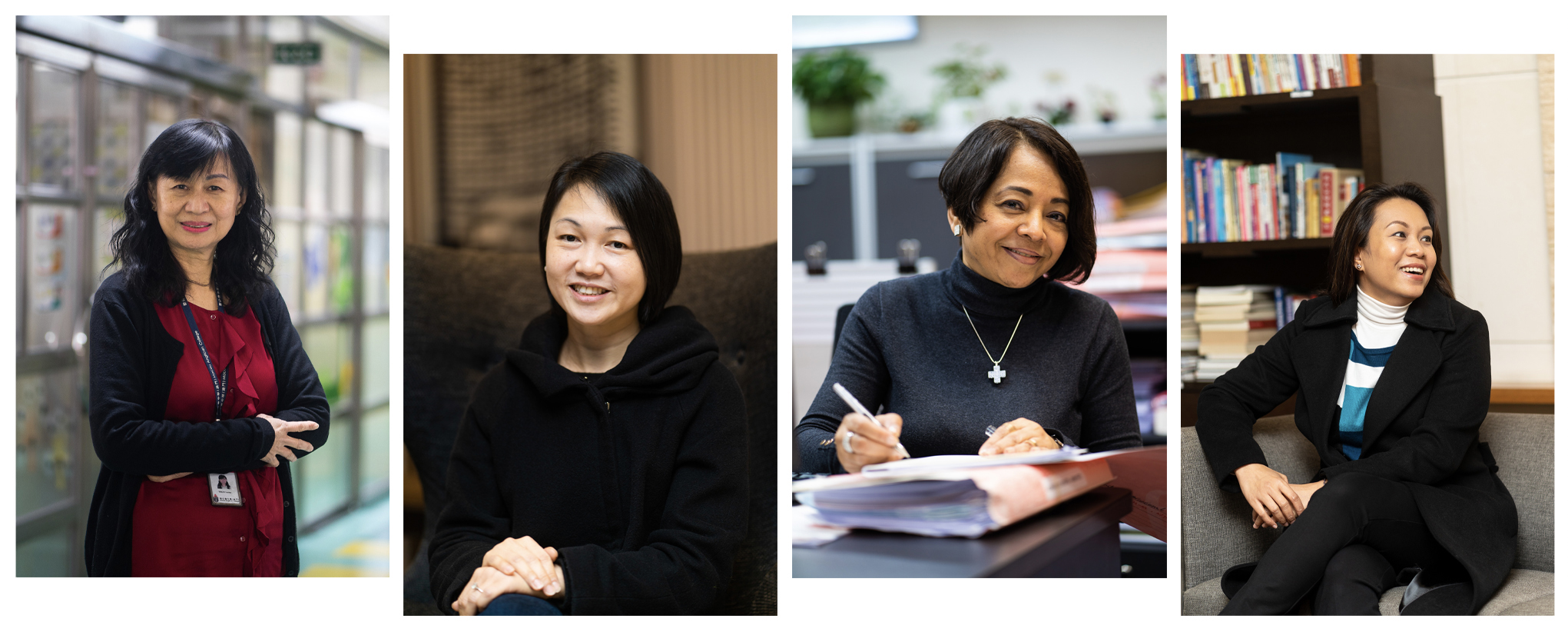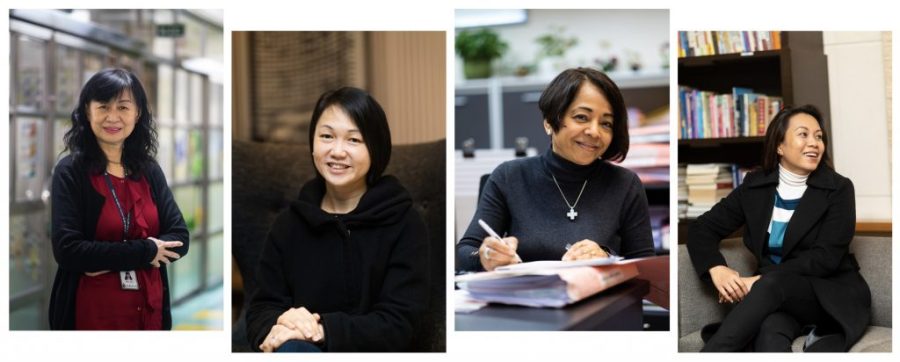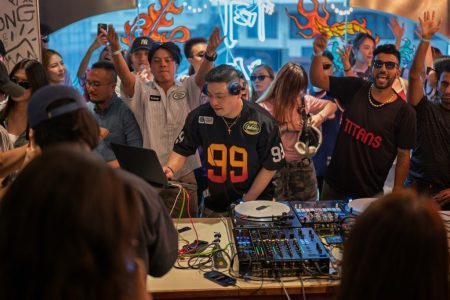Leaving your home behind to start fresh in a foreign place can be overwhelming on many levels. But it can also be a life-changing opportunity for personal and professional growth.
To mark International Women’s Day (IWD) on 8 March, which calls on the world to embrace diversity with this year’s #BreakTheBias campaign, we are celebrating women from Macao’s vibrant ethnic communities.
From Indonesia to Malaysia, India to the Philippines, these four women reflect on what it was like to move to Macao and establish themselves in a new city. Each found success in different ways, while sharing their talents, culture and perspectives with Macao for a more diverse and vibrant city.
An Indonesian woman loses her home but finds new purpose
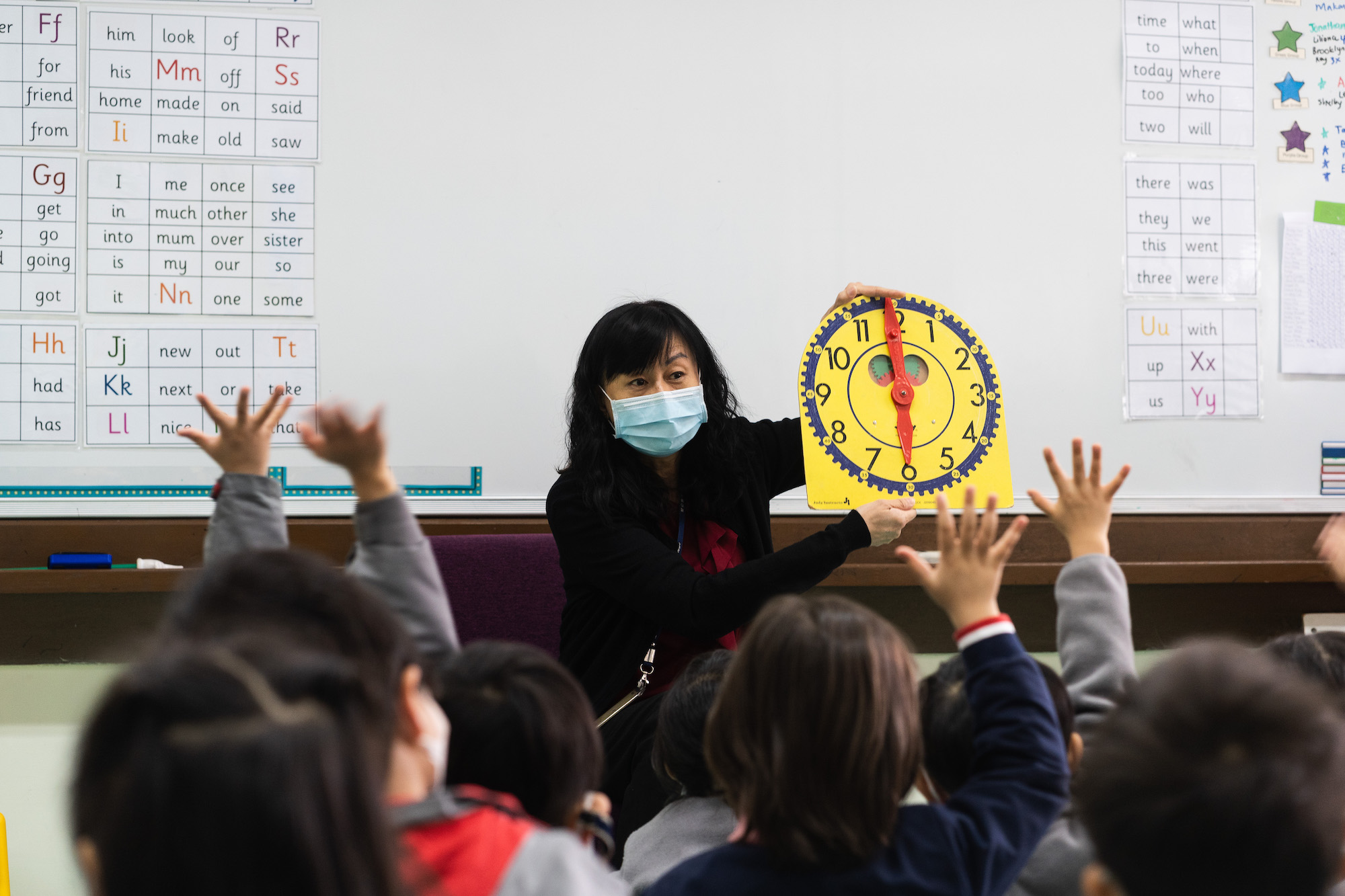
Amid escalating political instability in Indonesia, Lanny Thedy fled the country with two young children and her parents ahead of the May 1998 Riots – an uprising that resulted in the resignation of then-President Suharto and violent attacks against ethnic Chinese citizens.
“My father bought an apartment in Macao in 1997. When things got worse in Indonesia, we decided to come here in February 1998, but we didn’t plan to live here. I didn’t speak Cantonese and not a lot of people spoke English,” says the 59-year-old single mother who left a career as an engineer behind.
When they arrived in Macao, Thedy’s family did not feel accepted by society. “Discrimination was obvious at that time,” she says. As ethnically Chinese Indonesians, Thedy and her family spoke Mandarin. In her first year in Macao, she recalls being ignored by Macao residents who would not respond to her in Mandarin. “So I thought Macao was just a temporary place for us to run away from Indonesia,” she adds.
The plan changed after Thedy, a San Francisco State University graduate, found a job at Sam Yuk Middle School, where she taught mathematics, science and computer for the next four years. In 2002, she joined the Macau Anglican College’s kindergarten section and went on to become the school’s head administrator in 2009.
“A lot of teachers still cannot return to Macao because of the [border] restrictions [due to the pandemic], so we have [larger] workloads now, but I really enjoy being with the children so time flies really quickly,” she says.
After over 20 years in the city, she considers Macao her home and can now speak English proficiently as well as some Cantonese. Still, she loves Indonesia and wants to promote her culture – particularly foods like lalapan with sambal terasi (a raw vegetable salad served with traditional chilli sauce), among other dishes from West Java’s Sundanese ethnic community, in which she grew up.
“We have Indonesian food here but it’s not too authentic because some ingredients are not available, especially [what I need] to make the food from my hometown [of Sukabumi in West Java],” she says.
“I like spicy food. Unfortunately, you cannot find the authenticity of this terasi [shrimp paste] in Macao,” she says, adding that sometimes she misses eating in a saung (a traditional Sundanese hut) while listening to the angklung, a Sundanese musical instrument made of bamboo tubes on a bamboo frame.
In Macao, Thedy has found a relatively large community of fellow Indonesians to connect with. According to the Labour Affairs Bureau (DSAL), The number of non-resident workers from Indonesia stood at just shy of 5,000 in January 2022.
Thedy is particularly concerned about ill-treated Indonesian foreign domestic workers, hoping that the local government will better protect the city’s non-resident workers from some employers who mistreat their employees.
She also helps Indonesian parents navigate the education system in Macao. For example, Thedy has helped many parents enrol their children into Macau Anglican College’s kindergarten and other schools in the city.
Thedy encourages others from ethnic minority communities to keep trying and work hard, even when they face adversity. “Even though you are a minority and you may come from a small town like me and you may be looked down upon by others in the beginning, as long as you strive for the best with God’s guidance, you can make a difference in society,” she says. “Don’t be lazy and don’t give up easily.”
A Malaysian-Chinese woman thrives as a working mother
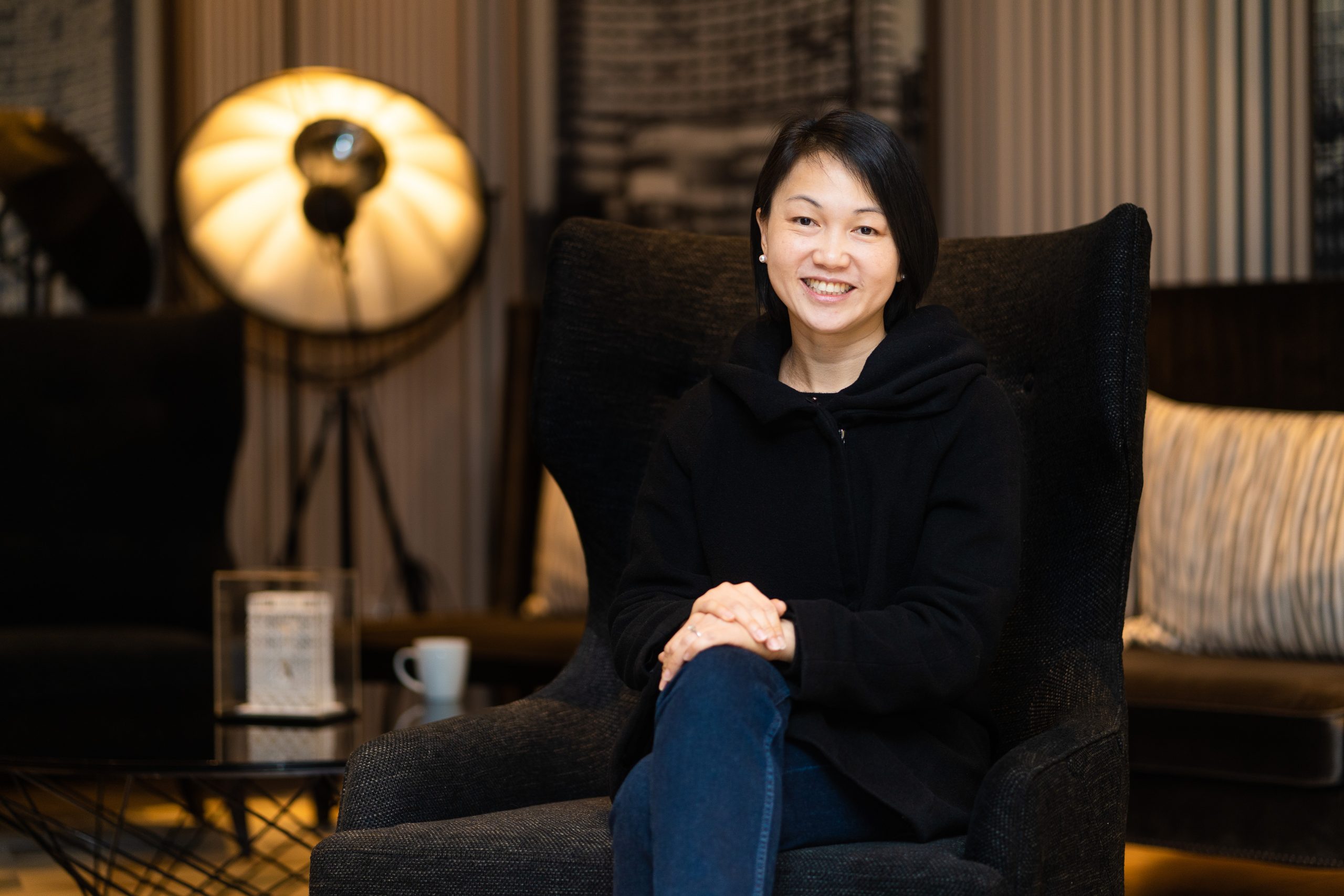
Born in 1979, Peck Yoke Chan grew up in the Malaysian coastal city of Port Dickson. Chan’s hometown is a close-knit community where “everyone knows everyone”, much like Macao, she says. “On weekends, my parents used to bring us to our favourite local coffee shop.”
After graduating from Monash University in Melbourne in 2001 with a bachelor’s in Commerce and a master’s degree in Business Information Systems, Peck Yoke Chan returned to Malaysia to work for a multinational consulting firm before moving to Hong Kong in 2003 with the same company.
After a few years, Chan joined Melco Resorts & Entertainment in 2007 as the director of recruitment in Hong Kong, and then moved to Macao in 2008 to continue her role.
Her husband joined her soon after, and the Malaysian-Chinese couple has since welcomed two sons, aged 11 and 7, and a 10-year-old daughter while living in Macao. The couple felt accepted in the city from day one. “No doubt it was a small sleepy town when I first arrived but, overall, we fit into Macao very well,” she recalls.
Chan’s career has grown alongside her family. She is now a vice president of human resources at Melco and juggles demands from all sides.
“Integrating [your] career and family is challenging, definitely, but it is also attainable. With good planning and setting clear priorities, we [women] can achieve both a successful career and a happy family,” she says. It’s really all about planning and priorities.”
Chan also makes time to celebrate her Malaysian heritage and is actively involved in the local community. “[Before the pandemic], I always made the effort to welcome Malaysians who came to work and live in Macao],” she says. “It’s a close-knit community and we take turns organising our big gathering once a year to celebrate Malaysian National Day [on 31 August] in Macao.”
“We’re always a fun group. We have little gatherings like casual lunch and coffee with our fellow compatriots. We do our durian buffet and introduce Malaysian cuisine like nasi lemak, laksa and satay to our non-Malaysian friends,” she says. “Macao has grown tremendously over the past 10 years and I’m happy to be part of it and witness the [city’s] growth.”
As of January 2022, the number of Malaysian non-resident workers stood at 714, according to DSAL. It’s a relatively small diaspora but a lively, convivial community.
An IP consultant reconnects with her Goan culture
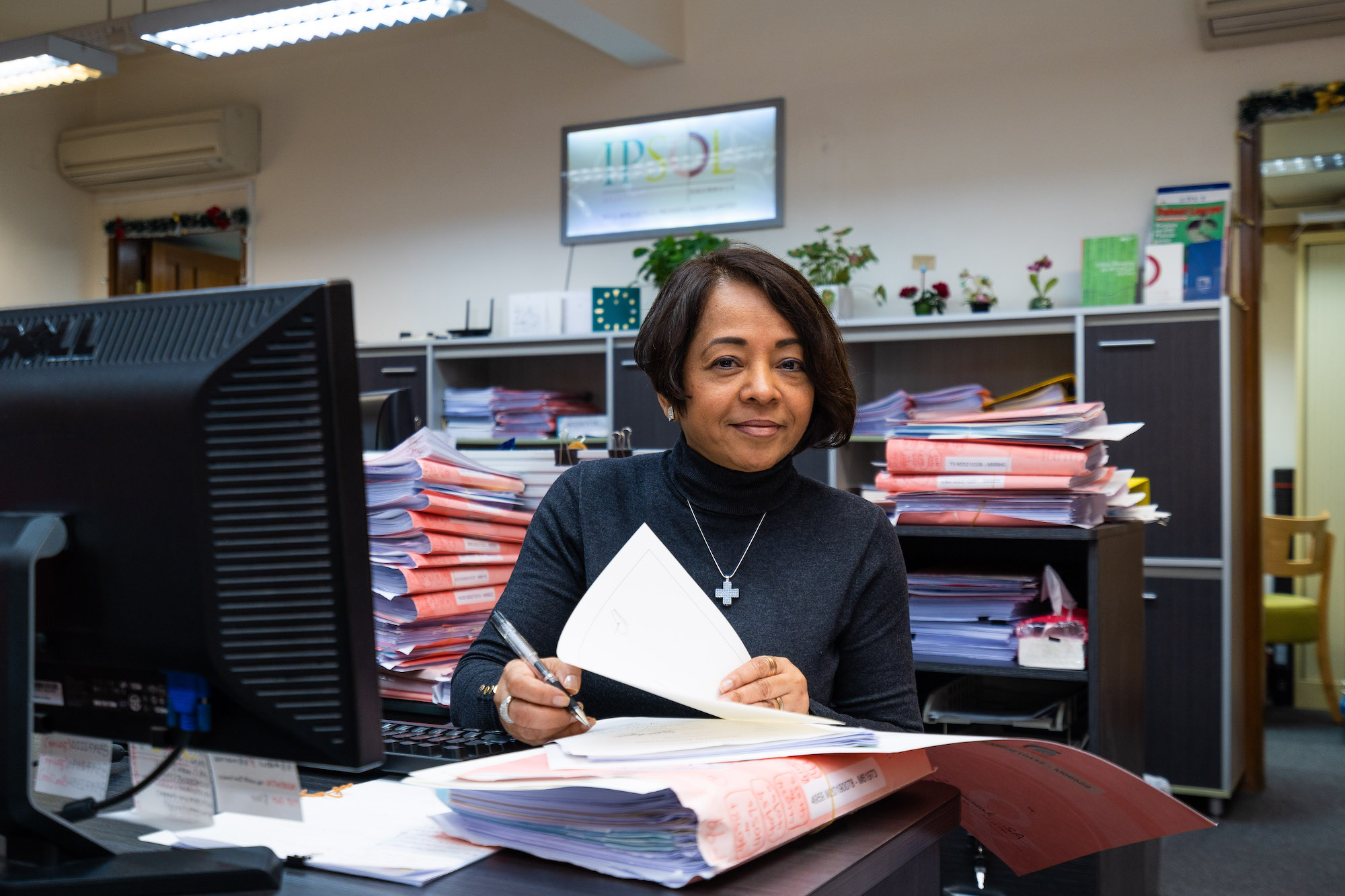
Growing up in Goa, a former Portuguese territory on the southwestern coast of India, Emalita Rocha, often performed as an amateur cultural dancer in the Timoteo Folklore Group (a famous Goan cultural dance troupe founded in 1965) as a teenager and young adult.
When she moved to Macao in 1989 to seek new job opportunities abroad, she lost touch with her culture while climbing the career ladder in the intellectual property (IP) industry. Ever ambitious, Rocha eventually became a partner consultant of Intellectual Property Solutions, part of C&C Lawyers, a well-known law firm in Macao.
Over the past 15 years, Rocha started seeking out ways to reconnect with her culture in Macao. The city is home to a relatively small community of immigrants from Goa, Daman and Diu, totalling less than 100 by Rocha’s estimate. Some sought refuge in Macao after India annexed these three former Portuguese territories in 1961; others came later for new opportunities and experiences.
Rocha became actively involved in the Núcleo de Animação Cultural de Goa, Damão e Diu (NACGDD) – meaning, the Centre of Cultural Animation of Goa, Daman and Diu – since the group was established in 2006. She served as the treasurer for eight years and is now a committee member, supervising the group’s activities.
While Rocha has observed a growing number of youth members in the Goan, Daman and Diu community, she still finds it challenging to promote the cultures in Macao. The younger generation does not share the same enthusiasm, she observes, and they also lack sufficient funding for events. “[It’s] because they have other priorities, such as their studies and career,” says 53-year-old Rocha.
One of the main events on NACGDD’s agenda is the annual Lusofonia Festival, a three-day festival that usually takes place in October. The group presents various dancing and singing performances, handicrafts and food, such as chicken xacuti (Goan-style curry), sorpotel (a Portuguese dish made with a mix of ingredients like pork and offal), Goan sausage and vindaloo (another Goan curry inspired by Portugal’s carne de vinha d’alhos). Beyond the festival, Rocha says she loves cooking these Goan dishes in her free time.
She hopes NACGDD can do more in the future, such as hosting community events, picnics and Christmas dinners. “We’d love to have more things, of course, but we are very few people, just around 70, and most of them are pushing over 60 years of age.”
A proud Goan, Rocha sees promoting her culture as a way to reminisce about growing up in her home country. “I always miss Goa,” she says. “Goa, Daman and Diu, like Macao, share Portuguese heritage. We try to show our cultures and traditions to enrich the local community. Diversity is important to better understand and appreciate people of different origins and cultures.”
A Filipina accountant finds a new calling during the pandemic

When she was just eight years old, Annie Lehtinen travelled with her sister from Manila to Hong Kong in 1989, then on to Macao, to join her parents and two brothers.
Her mother came to Macao the year prior, in 1988, to become a teacher at a local school. A few months later, Lehtinen’s father and two younger brothers followed, while she and her twin sister stayed in the Philippines to finish the school year.
She remembers her family’s transition to live in Macao going smoothly. “I don’t remember experiencing any discrimination,” she recalls.
After living in Macao for a few years, Lehtinen returned to the Philippines in 1996, and in 2003, graduated from De La Salle University in Manila with a degree in accounting. She worked there for a year before returning to Macao in March 2004 as a gaming auditor at Sands Macao.
Having been part of the company’s opening team, Lehtinen has had a front-row seat to the company’s many historic hotel debuts, from Sands Macao to The Venetian Macao, The Parisian Macao, and Marina Bay Sands in Singapore. She has also grown alongside the company, and in 2015, Sands China appointed Lehtinen as director of regional gaming audit and casino accounting.
But in March 2020, the mother of three left her demanding job to take care of her children full-time. “It was a chance for me to get involved more with my family, especially the children – what they are learning at school, checking their homework, thinking about their activities,” says Lehtinen.
After encountering problems when trying to hire a new domestic worker during the Covid-19 pandemic, she realised that both migrant workers and employers were having trouble navigating the system. In particular, she observed that many Filipino migrant workers were struggling with government regulations and needed help. As of January 2022, the DSAL recorded over 27,000 non-resident workers from the Philippines – of which over 52 per cent are domestic workers.
Seeing the scale of the issue, Lehtinen started reaching out and volunteering online via groups like Macau Domestic Helper Job Community and Bahay Kubo Sa Macau Original.
From there, she answered questions about employment regulations and paperwork, from filing passport renewal documentation to sharing information about cross-border transit and local law updates.
“The domestic helpers who lose their jobs have no safety net to mitigate the effects and additional burden caused by the pandemic. Most of them do not even have enough money to go through the ordeal. They are at the mercy of those who are able to help,” says Letihen of her motivation to help.
“They do not get subsidies from the government like residents. And ultimately because the local community needs them too, so we need to look out for each other.”
And since she had first-hand knowledge about hiring a new domestic worker during the pandemic, she also started helping friends in Macao in the same situation. Often, aspiring employers need guidance during the hiring process, which has become more complicated during the pandemic period.
She has also come to the aid of Macao residents who were trying to return to the city but were stranded in the Philippines – a situation Lehtinen’s parents faced in November 2020. In March 2021, she started inquiring how her parents could return to Macao, and soon found herself also assisting 19 other residents stuck in the Philippines. She helped them search for flight information, make bookings, seek approvals from the Macao government and request support from the local Philippine consulate.
In the end, only seven people decided to proceed with the flight bookings, including Lehtinen’s parents, and the group came back to Macao in May 2021. “I was happy to have helped others solve their problems. It was happiness beyond words,” she says.
Celebrate International Women’s Day
You can celebrate this year’s IWD and join #BreakTheBias campaign by crossing your arms and taking a photo in solidarity. Strike the IWD 2022 pose and share your #BreakTheBias images, videos and others on social media using #IWD2022 #BreakTheBias tags.
